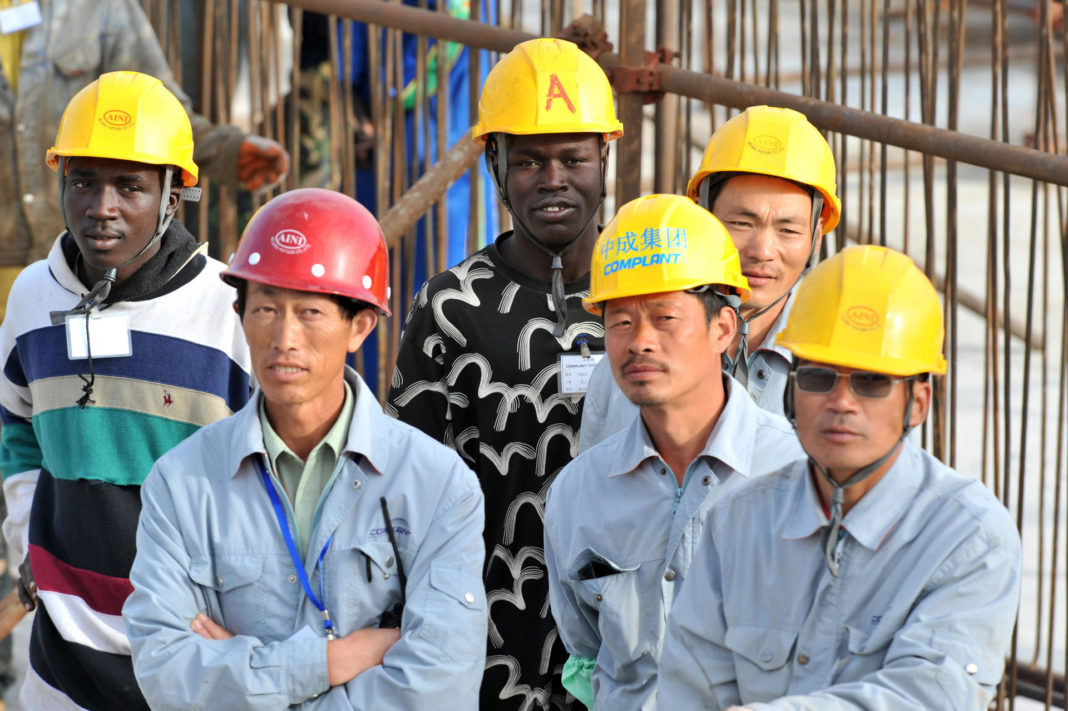The past three decades have seen a marked step change in Africa’s international relations. While geography historically favoured a European focus – especially in North Africa – the continent has shifted its gaze to the East.
China has catapulted from being a relatively small investor in the continent to becoming Africa’s largest economic partner. Africa-China trade is poised to grow 20% year on year making it seem like dragons are the new king of the African jungle.
Investment in Africa has however been structured around Chinese ownership, with roughly 90% of firms either majority controlled or owned outright by Chinese nationals. There are estimated to be over 10,000 Chinese firms in Africa that have created work for several million Africans. This economic stimulus continues to have significant economic impact in communities riddled with historic economic disparities.
Chinese firms have shown remarkable prowess in sectors such as manufacturing, resources, and infrastructure. One of the first famous examples is the Tanzania-Zambia Railway built between 1970 and 1975, for which China provided a zero-interest loan of RMB980 million ($150 million). Sectors including agriculture, banking, insurance, transport and logistics, housing, information communications technology and telecommunications are poised to see significant shifts to Chinese firms. Chinese firms have the benefit of tried-and-tested business models which bear great similarities to the African marketplace.
To ensure the sustainability of the Africa-China partnership, three key concerns need to be addressed: Corruption, personal safety, and language and cultural barriers.
Corruption has thrived in Africa’s current climate of political and economic impunity. Corruption creates and increases poverty and exclusion. While corrupt individuals with deep political ties enjoy a lavish life, millions of Africans are deprived of their basic needs like food, health, education, housing, access to clean water and sanitation. Violence and crime across the continent derail efforts to encourage community building and foreign direct investment. Language and cultural barriers can lead to clashes that lead to misunderstanding and ignorance of local regulations.
If these problems are left unaddressed, the misunderstandings – and potentially serious long-term social issues – could weaken the overall sustainability of the Africa-China relationship.
Chinese aid to Africa has been criticized as being a form of economic colonization. Politically aid has been used to create strong bilateral ties between African countries and China. Proponents highlight the structural benefits brought about by aid; downplaying the benefits to China in the form of profit, resource extraction, and the acquisition of service contracts to Chinese companies. In a nutshell, whichever country offers the greatest economic gains based on China’s growth strategy becomes a target for aid. Currently this strategy is geared towards partnering with resource-rich countries, which often lack the political and economic structures required to efficiently and effectively manage such bilateral trade opportunities.
The key challenge is to ensure that there is an effective political and economic strategy to piggyback off Chinese intervention to ensure broad based economic empowerment.
Part of this strategy should include elements like building a middle class in Africa, developing African entrepreneurs, allocating factors of production, industry 4.0, innovative distribution, and public-private partnerships.
The current economic polarization in Africa needs to be addressed by actively creating a middles class. Clan-based economic feudalism needs to be replaced by an educated and economically engaged middle class. Economic empowerment in turn will promote political development leading to healthier international trade relations.
Entrepreneurship, while still in its African infancy, has made significant strides both domestically and internationally. Agriculture, manufacturing, retail, and tourism can act as an employment sponge for basic labour intensive work. While not a cornerstone employment strategy, it will lead to rapid, broad-based job creation, often requiring very basic skill sets. Further vocational training can be provided in these sectors to prevent generational skills gaps.
Effective allocation of factors of production – specifically land ownership – will be critical. It’s a sensitive subject given Africa’s colonial past, however it’s one governments need to address to start an ambitious national agricultural plan. The rapid growth of Africa’s population presents significant opportunities for our poultry and grain sector.
Industry 4.0 will make global manufacturing much more competitive in the future. Traditional industrial economies, such as Germany and the United States, expect the fourth industrial revolution to create many competitive advantages, reversing the trend to relocate manufacturing processes to low-cost countries and create new high-tech opportunities at home. Africa is ideally positioned to leapfrog into Industry 4.0 by adopting best practices seen in developed countries. This will enable African-owned manufacturers to effectively compete with Chinese companies.
Africa is at the tip of an economic renaissance that will see opportunities being created that were considered impossible a few decades ago. But, this requires strong leadership in both politics and business. Citizens in turn will have to hold their political leaders accountable, specifically promoting broad-based economic empowerment, to ensure that the maximum number of people benefit from this growth.

